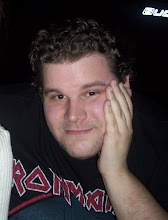Skills represent learned talents, aptitudes and knowledges. Like attributes, skill levels range from 1 to 5 (and, rarely, can rise above 5), The higher the skill level, the better the character is at the skill . For example, an Engineer with Systems Engineering (Sensors) 2 (4) is assumed to know more and be capable of doing more than an Engineer with Systems Engineering (Sensors) 1 (2). Each skill is linked to an attribute, which is used when making Skill Tests; the attribute for each skill is listed in the skill's description. Whenever possible, Tests should incorporate skills as well as attributes.
When deciding which skill is most applicable to a given situation or Test, the Narrator should be flexible - - there is often more than one way to accomplish a particular task. The best method is usually to decide which skill would be most applicable in the situation, then increase the Difficulty Number needed to succeed with a less applicable skill (the less related the other skill, the greater the increase in the Difficulty Number).
Specialization
Some skills require Specialization. This represents the character's area of expertise, such as Systems Engineering (Computer Systems) and Life Sciences (Biology). A character cannot hope to know everything there is to know about broad, detailed subjects such as engineering, science or shipboard systems, so he must focus on one area of expertise. Specializations are written in parentheses following the base level of the skill . For example, a character might know Energy Weapon (Stazer) 2 (3), meaning that he has the Energy Weapon skill at level 2, but can use stazers at level 3. Initially, characters start with a Specialization one level higher than the base skill . During character creation, or as a result of game play, characters can choose to increase their Specialization, such as Energy Weapon (Stazer) 2 (5), which represents the character's extensive experience and training in that area. Specializations normally are higher than the base skill. If, for any reason—during character creation or gameplay,—the base skill equals or exceeds the specialization skill level, this means that the character's general skills have matched his specialization. However, a character who specializes still knows the basics in his field and can attempt to use his skill in other, related areas. An officer specializing in Flight Control has learned the basic principles of Shipboard Systems, and can use any other Specialization under Shipboard Systems at his base skill level. For example, an officer with Shipboard Systems (Flight Control) 2 (4) could operate the tactical station in a pinch, because he knows the principles that apply to most equipment. The Specializations listed under each skill are not exclusive; they simply represent prominent examples. Players who think up other Specializations for their characters to choose should be allowed to do so, subject to Narrator approval.
Greetings
Welcome to Lug Who. To date, there have been two officially licensed Doctor Who RPGs. The best of the two has always (in my mind) been the game published by FASA, based on their Star Trek RPG. So, when Last Unicorn Games published a new Star Trek RPG, I felt its system (with its highly detailed character stats) was ideally suited to a Doctor Who RPG. Alas, this never came to pass. So, after thinking about it all these years, I've decided to create this site. Here I will post original species templates, advantages, disadvantages, skills, equipment, ships, etc. I will be accepting submissions from anyone who might be interested in roleplaying with the Icon system.
To submit content send an email to: lugwho@gmail.com
P.S. Feel free to submit alternate ideas for things already posted.
To submit content send an email to: lugwho@gmail.com
P.S. Feel free to submit alternate ideas for things already posted.
Sunday, December 23, 2007
Subscribe to:
Post Comments (Atom)

No comments:
Post a Comment